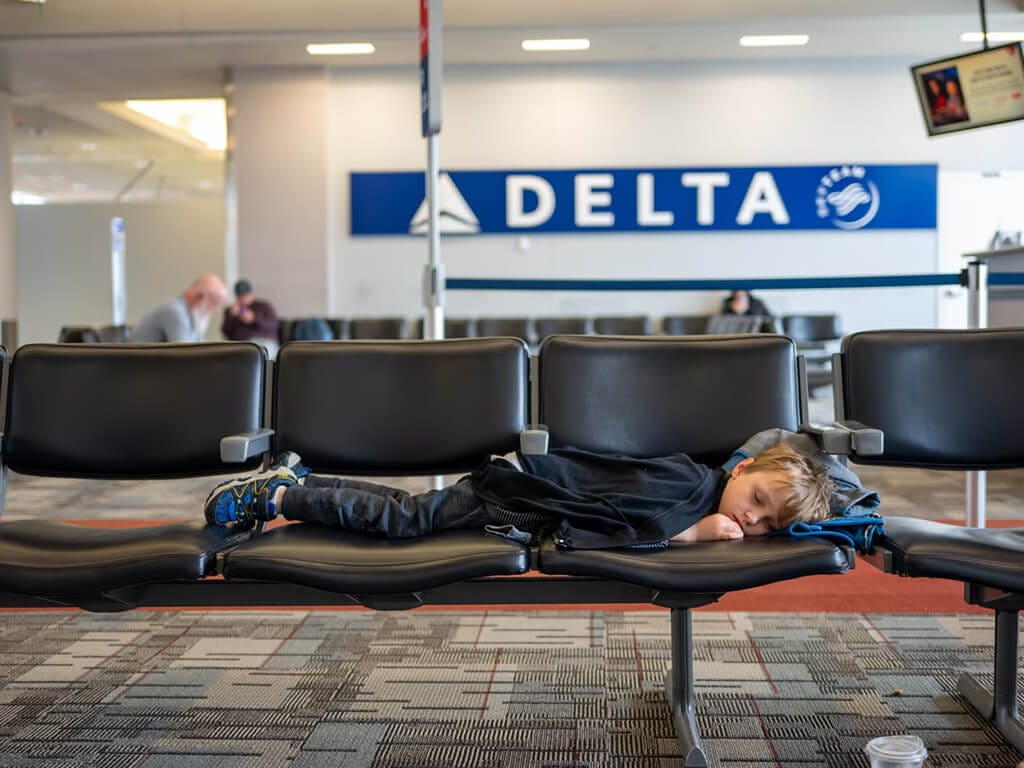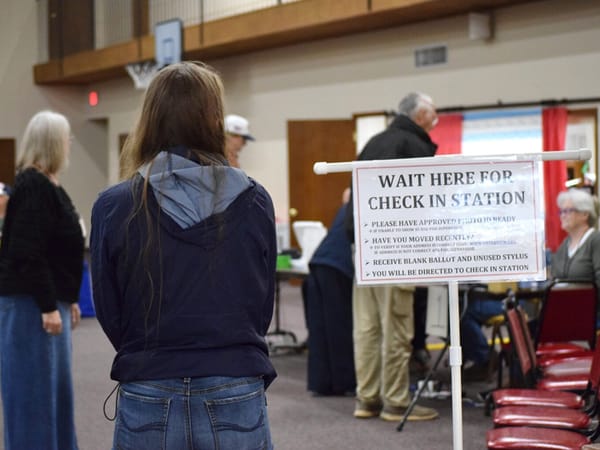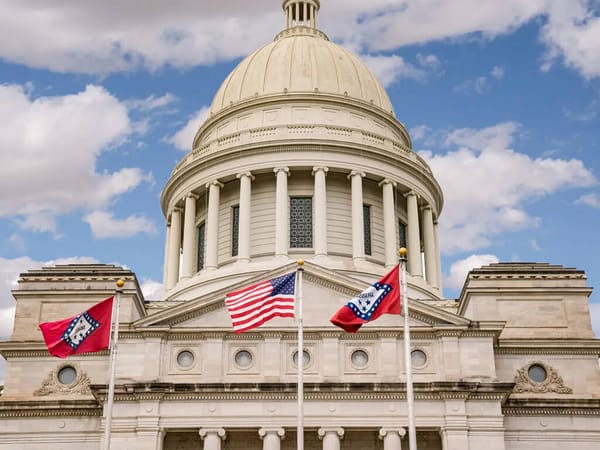Across the Nation, Flights Are Cut. In Arkansas, Airports Hold Steady—For Now.
As the record-breaking federal government shutdown forces major airlines to cancel flights across the nation, Arkansas airports are staying alert, even as local operations continue.

Americans are beginning to feel the deeper effects of the prolonged federal government shutdown. Now in its 38th day, the shutdown is visibly affecting daily life across the country, with airlines among the hardest hit.
The Federal Aviation Administration announced plans to scale back flight operations to ensure air traffic safety amid staffing shortages caused by the shutdown. Starting early Friday, air traffic in several major markets will be reduced by 4 percent, a measure expected to trigger thousands of flight cancellations and widespread schedule disruptions.
Transportation Secretary Sean Duffy wrote on X Thursday that the FAA’s decision was “not about politics” but about “evaluating the data and reducing growing risks in the system as air traffic controllers continue to work without pay.” He added, “It is safe to fly today, tomorrow, and the day after because of the proactive steps we are taking.”
With the political gridlock in Washington showing no signs of easing, travelers now face the mounting impact as the holiday and festival season nears.
Safety Concerns Force Flight Cuts
Beginning Friday, the Federal Aviation Administration (FAA) will reduce flights at 40 major U.S. airports to address safety concerns stemming from an ongoing shortage of air traffic controllers. By Thursday evening, United, Southwest, and Delta Airlines had already started canceling flights in anticipation of the cuts.
Delta announced 170 cancellations for Friday and fewer for Saturday, while Southwest said it would cancel 120 flights on Friday. United plans to cut 4 percent of its schedule from Friday through Sunday.
Scott Kirby, CEO of United Airlines, said the FAA’s goal “is to relieve pressure on the aviation system so that we can all continue to operate safely. That is the FAA’s highest priority, and ours as well. No matter what environment we’re operating in, we will not compromise on safety.”
Kirby added that United will make rolling updates to its schedule during the shutdown “to give customers several days’ notice and minimize disruption.”
Delta Air Lines stated it will comply with FAA directives and expects to operate most of its flights as scheduled, including all long-haul international service. The airline also announced flexible travel options, allowing customers to change, cancel, or refund flights, including basic economy fares, without penalty.
According to aviation analytics firm Cirium, as many as 1,800 flights and 268,000 passenger seats could be affected nationwide. Major hubs such as Atlanta, Charlotte, Denver, Dallas/Fort Worth, Orlando, Los Angeles, Miami, and San Francisco are among the airports expected to face disruptions. Multiple airports in New York, Houston, and Chicago are also likely to experience delays.
All three airports serving the Washington, D.C. area, Dulles International, Baltimore/Washington International, and Reagan National, are expected to face interruptions, which could delay travel for both lawmakers and the general public.
From Friday through Sunday evening, at least 39 air traffic control facilities reported staffing limits, according to an analysis by the Associated Press. That figure, well above the pre-shutdown average of eight per weekend, highlights the growing strain on the system. Since the shutdown began, the weekend average has tripled to more than 26 facilities reporting shortages.
Air traffic controllers, who have been working without pay since October 1, are increasingly stretched thin. Many are working mandatory overtime or taking second jobs, according to Transportation Secretary Sean Duffy, who said the flight reductions were intended to “alleviate the pressure.”
“Many of the controllers said, ‘A lot of us can manage missing one paycheck. None of us can manage missing two,’” Duffy said Wednesday, blaming Democrats for any “mass chaos” that may follow, though both parties remain deadlocked.
Arkansas Airports Monitor the Situation
While Arkansas airports are not yet among the 40 facing immediate flight reductions, they are closely monitoring the situation as the federal shutdown continues.
The state’s two main airports, Northwest Arkansas National Airport (XNA) and Clinton National Airport in Little Rock, have so far avoided cancellations but acknowledge that disruptions could soon reach them.
XNA connects to nearly half of the airports on the FAA’s reduction list, offering 27 direct flights to those destinations. Of those, 18 are affected by the FAA cuts, while nine remain unaffected.
Airport officials at XNA said operations remain fully functional for now, though they are aware of the mounting strain on the national system.
XNA CEO Aaron Burkes said operations continue to run smoothly. The airport does not have air traffic controllers stationed on-site, and non-TSA employees are paid directly through the airport.
“So far, we have been relatively unaffected,” Burkes said. “Of course, TSA employees are federal workers and are not being paid right now, though they’re all showing up for work. We don’t anticipate that will be a significant problem for us, unless these TSA employees decide they can no longer afford to work without a paycheck.”
Burkes added that the airport has been finding small ways to support unpaid TSA staff.
“We’re limited in what we can do,” he said. “Some of our staff have been coordinating with companies that want to donate. We’ve been buying them meals, doing what we can. We’re bringing them Chick-fil-A.”
Both XNA and Clinton National declined to play a Department of Homeland Security video recorded by DHS Secretary Kristi Noem, which blamed Democrats for the shutdown. The video had been intended for display at TSA checkpoints.
Burkes said XNA chose not to show the video because the airport lacks the equipment to play such messages and prefers to stay out of politics.
Festival Season Approaches
While Arkansas airports remain open and operational, the upcoming festival season could bring major challenges. With the potential for more flight reductions and growing delays on limited routes.
FlightAware, a flight-tracking service, reported more than 21,000 delayed flights nationwide during the weekend of October 24–26, though not all were linked to staffing shortages. In Arkansas, Northwest Arkansas National Airport (XNA) recorded 83 delays, while Clinton National Airport in Little Rock reported 91. The numbers are expected to rise as new data comes in.
Aviation officials warn that conditions could worsen if Congress does not approve a budget soon.
For now, Arkansas airports continue to operate, but tougher days lie ahead.





